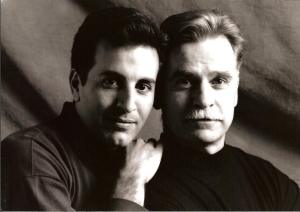A year ago I wrote about an experience that I had three decades earlier. It is an experience I visit again and again when I ponder what to do longer than I feel that I should.
I am at a workshop and there is a major upset going on between two participants. They are standing and have been shouting at each other for what seems forever. I recall sitting in a stackable chair, facing east, with my back to the side entrance to the meeting room. There are four people sitting in a row to my left. The workshop facilitator is with the two participants and seems to have lost control of the situation. I recall wondering why someone doesn’t say something that will help resolve the situation. Certainly everyone can see what needs to be done. Surely others recognize the logic errors each of those in conflict were making, how their stories don’t match for the events that prompt their upset. By now we all recognize that the real conflict has nothing to do with the present, but likely originates in each person’s past, right?
This experience stays with me because it was the moment when I first clearly recognized in adulthood my fantasy that my prince would show up. He would come in and share the same insights I have and do what I knew needed to be done. He would be smarter, more self-assured, and better looking than me. He would be my hero, for sure.
 The timing of this experience could not have been better in several ways, but chief among them was the recent decision I had made back then to commit fidelity and constancy to my late husband. What I learned in those minutes in a meeting room in an intensive workshop was that the prince I was waiting for had indeed arrived. And he is me. My new spouse totally dodged that bullet for the next three decades. He was not going to save me or make my life better. He was going to be my witness as I made my life better and saved myself.
The timing of this experience could not have been better in several ways, but chief among them was the recent decision I had made back then to commit fidelity and constancy to my late husband. What I learned in those minutes in a meeting room in an intensive workshop was that the prince I was waiting for had indeed arrived. And he is me. My new spouse totally dodged that bullet for the next three decades. He was not going to save me or make my life better. He was going to be my witness as I made my life better and saved myself.
Today I am reminded of this experience as I think about what appears to be a pervasive sense of powerlessness in the US. I wonder if that perceived powerlessness underlies the growing feeling among so many that they need to be armed with guns. Or, if it is in play when we fail to come to the aid of another, expecting someone else to step up. I can’t help but suspect that it is this awareness of perceived powerlessness that prompts billionaire investors in major league sports manipulate local governments into giving them our tax dollars. We won’t even seriously complain.
On Monday I travelled to Chicago on an Amtrak train, sitting right in front of a young father and his daughter, a girl of perhaps four. Periodically throughout the 90 minute ride, he spoke on the phone to the girl’s mother who apparently lived in Chicago and whom he expected to be at the station to greet them. The man never raised his voice, but his urgent and demanding conversation was unsettling to many who could hear him. The number of times he said “fuck” or “bitch” was even unsettling to me, and I swear like a trooper. Between calls, the man spoke tenderly to his daughter and was patient with her singing and bouncing around a bit. His ire seemed quite focused on her mother and the perceived disrespect she showed by not following the instructions he had apparently given her earlier. He questioned why her new man hadn’t made arrangements to get her to the station and why she supposed he would need to pay for her taxi ride home.
At first these cell phone exchanges between the girl’s mother and father worried me. I thought of getting up and finding one of the conductors who I suspected would know just what to do. Then I remembered the workshop. I was sure I would be able to handle whatever came up for this little girl. When I rose to exit the train, I would wait for them to exit and follow them until I saw that they exchange from father to mother was going smoothly. If it wasn’t, I would offer a hand and involve security if the girl seemed in danger in any way.
As it turned out, my assessment of the situation was correct. The mother brought another woman with her, and the little one’s excitement about seeing them both did the trick. Besides, the father apparently wanted to catch the return train.
I thought of my workshop experience again today when I heard someone say what I recall saying myself several times over the decades since the Vietnam War: “If (fill in the name of a candidate) gets elected, I will move to Canada.” This sort of response to political conflicts does not so much suggest a lack of agency, as it does a lack of determination and an underestimate of one’s own power. In this, we fail to be accountable for the election outcomes.